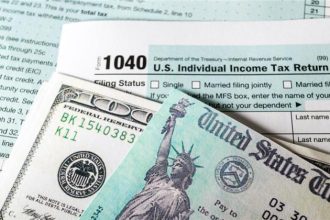Credit Sesame discusses reduced inflation and what may have a negative impact in the future.
The Federal Reserve cut interest rates on September 18, 2024, essentially declaring victory in its battle with inflation. As inflation rose in 2021 and 2022, the Fed made a series of 11 rate hikes beginning in March 2022. Even after inflation subsided in late 2023, the Fed kept interest rates high for several months to ensure the threat had abated.
The annual inflation rate is currently 2.5%, and the Fed finally feels comfortable enough to make what it expects to be a series of rate cuts. The first rate cut was unusually large, at 0.5%. This may mean that the most recent battle with inflation is over, but the Fed knows the war is far from over. Recent headlines have provided ample reminders of how stubborn inflation can be.
Hurricane Helene causes widespread destruction
Even by the horrific standards of hurricane destructiveness, Hurricane Helene’s damage stands out. The hurricane moved further inland than usual, leaving a wide swathe of carnage across the Southeast. One source estimates this caused between $145 billion and $160 billion in damage, making it among the most costly storms ever.
Besides the massive cost of rebuilding the damage, the interruption of normal economic activity in the affected areas will surely have a significant impact for months or even years. Agriculture, manufacturing and transportation have all been profoundly disrupted.
The impact of that extends well beyond the areas that the storm hit. It’s likely to cause lingering supply chain problems. As Americans learned all too well during the 2020 pandemic, supply chain problems lead to shortages and, ultimately, to inflation.
A dockworkers strike ends quickly at a price
Speaking of supply chain disruption, the largest dockworker strike in 50 years blocked shipping from Maine to Texas, which threatened to severely hamper the flow of goods into the United States.
Fortunately, the strike ended after three days. However, strikes can be a no-win situation from an inflationary standpoint. An extended strike can cause inflationary shortages of supplies. A quick resolution tends to require generous financial concessions from employers. In this case, that entailed a commitment to hiking wages by 62% over six years. Much of that will likely be passed along to consumers through added costs for goods flowing through the ports. This represents a new source of inflation pressure.
Worse, despite the wage concessions, unresolved issues remain to be negotiated. If these aren’t settled by January 15, 2025, the threat of supply chain disruptions will loom again.
Conflict in the Middle East has widened and intensified
Meanwhile, in the Middle East, hostilities are again reaching boiling point. Attacks by and against Israel are escalating on multiple fronts. War in the Middle East affects oil prices. The price of a barrel of oil surged by over $3 in a single day as the conflict grew.
Over the last few years, falling oil prices have played an important role in easing inflation. A resurgence of oil prices could send inflation upward again.
Protecting yourself from a revival of inflation
If inflation becomes a problem again, there are steps you can take to reduce its impact:
- Be an informed shopper. Don’t rely on what retailers claim are “sale prices.” Comparison shop to find the best deals. If you prefer to shop in person, find the best prices online and then go to a store to buy.
- Make sure your credit card rates are competitive. The Fed cut interest rates and plans to make additional cuts in the months ahead. However, not all credit cards will respond to the same extent. A changing rate environment signals that it may be time to look at the credit card market and see if your rates are competitive.
- Minimize borrowing. Borrowing magnifies inflation in two ways. It allows you to spend more than you otherwise would, so higher prices affect you more. Also, the interest on debt adds significantly to the cost of things you use credit to buy. This added cost can far exceed the general rate of inflation.
- Don’t give in to “spendflation.” As much as people complain about rising prices, many make the problem worse by buying goods and services more than ever. The Bureau of Labor Statistics recently announced that average consumer expenditures grew by 5.9% in 2023, well above the inflation rate of 4.1%. If you have trouble making ends meet, consider whether your spending habits add to the challenge of rising prices.
- Monitor your credit score and report any errors. A good credit score can help you secure better interest rates on loans and credit cards, which can be especially important during inflationary times. Regularly check your credit report for errors and take steps to correct them.
Despite the Federal Reserve’s recent rate cut, the threat of inflation rising again remains a persistent concern. The economy has made significant strides in combating rising prices, but supply chain disruptions, geopolitical tensions, and potential economic shocks could reignite inflationary pressures. Individuals and businesses must remain vigilant and take proactive steps to protect themselves from the adverse effects of inflation. By adopting strategies such as informed shopping, managing credit card rates effectively, minimizing borrowing, and avoiding excessive spending, consumers can mitigate the impact of inflation on their finances.
If you enjoyed Is reduced inflation here to stay? you may like,
Disclaimer: The article and information provided here are for informational purposes only and are not intended as a substitute for professional advice.
Read the full article here
















